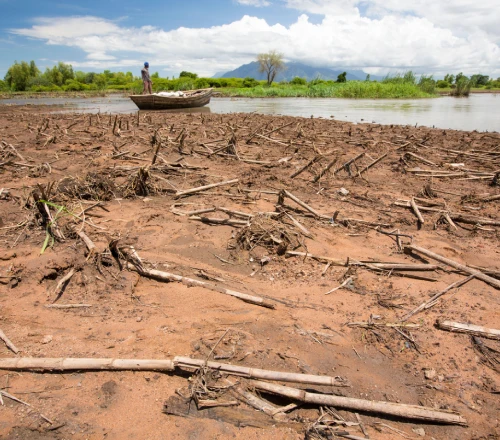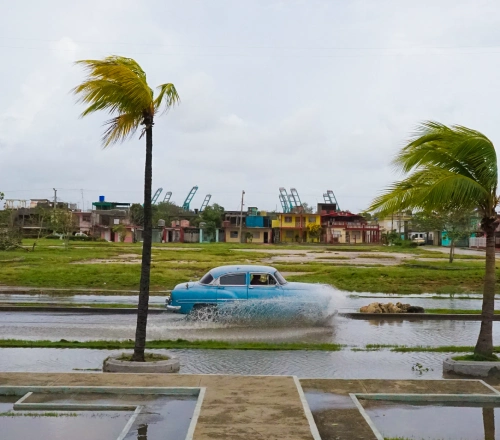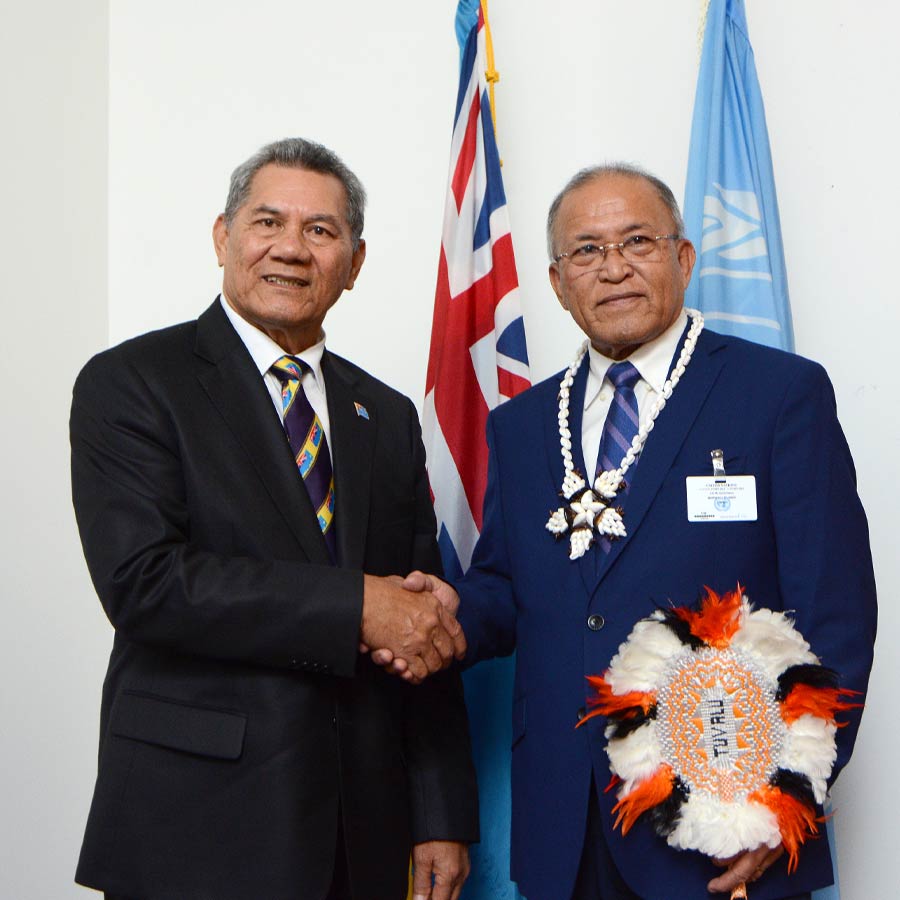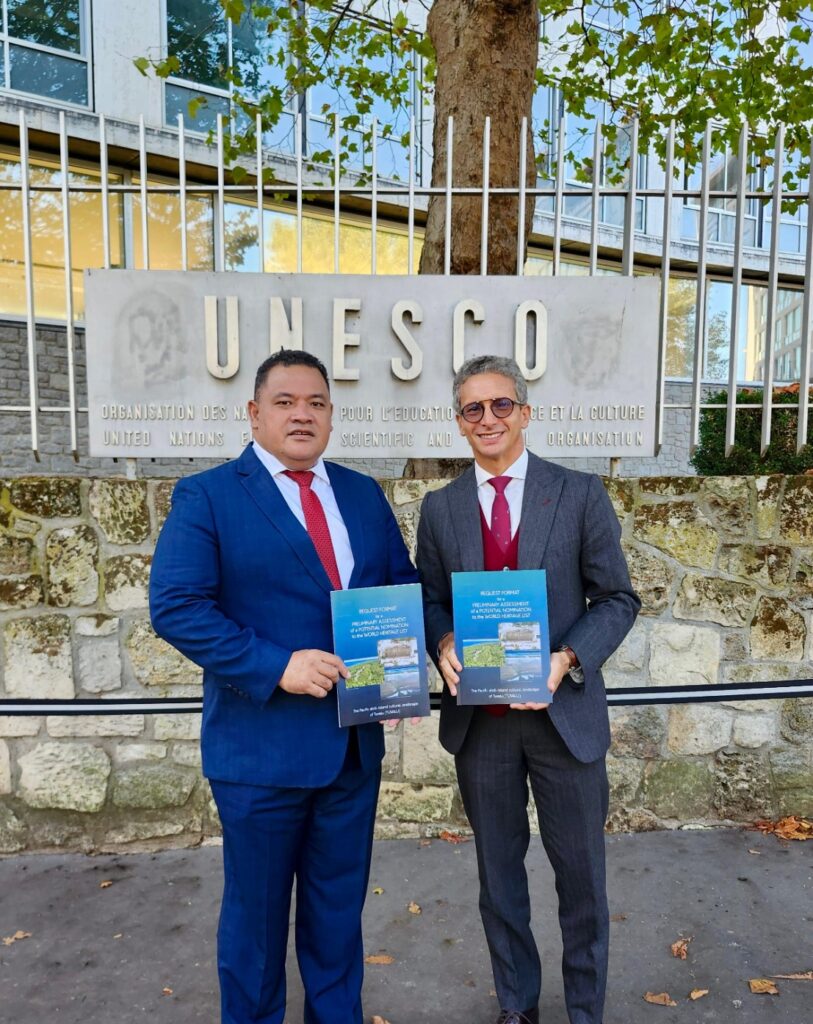12 September 2025 — The Pacific atoll nation of Tuvalu, one of the world’s most climate-vulnerable countries, has taken a bold, unprecedented step to safeguard its cultural heritage and identity in the face of rising seas. Supported by the Rising Nations Initiative, Tuvalu is advancing its first-ever application for UNESCO World Heritage recognition – to document centuries-old traditions, conservation practices, and sacred landscapes. This is the first time the tangible and intangible heritage of an entire nation is being put forward for such recognition.
The initiative seeks to protect Tuvalu’s fragile cultural landscape, which spans eight coral atolls across 750,000 km² of ocean and includes communal maneapa meeting halls, pulaka (taro) pits, sacred sites, and oral traditions passed down for generations. These practices now face existential threats from sea-level rise, saltwater intrusion, and coastal erosion.
“The world must understand that culture is as vital as land. By protecting Tuvalu’s heritage, we are defending the dignity and continuity of our nation,” said H.E. Maina Talia, Tuvalu’s Minister for Home Affairs, Climate Change and Environment, who presented this application to UNESCO’s Assistant Director-General for Culture, Mr. Ernesto Renato Ottone Ramirez.
“Tuvalu’s commitment reminds us that culture is at the heart of resilience,” said Prof. Kamal Amakrane, Managing Director of the Global Centre for Climate Mobility, a global entity that enables the Rising Nations Initiative. “By safeguarding heritage, we strengthen dignity, identity, and the ability of communities to adapt in the face of climate change.”
On the occasion of this historic submission, the Global Centre for Climate Mobility (GCCM), gathered with the government delegations, UNESCO representatives, and development partners to highlight Tuvalu’s leadership in cultural resilience and to explore strategies for integrating heritage protection into global climate mobility frameworks. The Pacific Island Forum (PIF) Troika – Tonga, the Solomon Islands, and the Republic of Palau – joined in support of Tuvalu and its submission for UNESCO World Heritage as a critical aspect of safeguarding culture and heritage amidst the climate crisis and sea-level rise.
“As a fellow nation of the Pacific, we know that culture is our anchor,” said Dr. Sania El Kadi, Acting Permanent Delegate of the Republic of Palau to UNESCO. “By standing with Tuvalu in this effort, we affirm that protecting heritage is protecting sovereignty and survival in the face of rising seas.”
“In the Solomon Islands, as in Tuvalu, our culture is foundational,” said H. E. Nasri Lahoud, Ambassador, Permanent Delegate of Solomon Islands to UNESCO. “We stand with Tuvalu in affirming that safeguarding heritage is vital to the survival of Pacific nations in the face of climate change.”
“Tuvalu’s heritage carries lessons of resilience, stewardship, and community that the world urgently needs,” said H.E. Greer Albas, Ambassador and Permanent Delegate of Australia to UNESCO. “Australia stands with Tuvalu in ensuring its statehood and sovereignty, as well as its identity and culture, are safeguarded for generations to come.”
Expected outcomes of Tuvalu’s historic submission of this application include:
– Increased visibility for Tuvalu’s heritage preservation efforts and UNESCO application.
– Strengthened international cooperation to safeguard heritage in the context of climate change and human mobility.
– Greater recognition of cultural heritage as central to adaptation, resilience, and human dignity.
The Rising Nations Initiative, hosted by the Global Centre for Climate Mobility, emphasizes that preserving cultural heritage is a cornerstone of Tuvalu’s resilience.
About the Global Centre for Climate Mobility:
The Global Centre for Climate Mobility (GCCM) is a global entity at the intersection of climate action and human mobility, enabling positive adaptation journeys for people and communities on the frontlines of the climate crisis, upholding their adaptive capacities and the Right to Stay. Hosted at the United Nations Office for Project Services, the GCCM is supported by champion countries, UN Agencies, the World Bank, regional organizations, philanthropies, civil society, and research institutions. The GCCM advances positive community transitions in climate-vulnerable regions through regional initiatives that support governments and frontline communities to anticipate, plan for, and respond to climate mobility, including the Africa Climate Mobility Initiative (launched in 2021), the Greater Caribbean Climate Mobility Initiative (2022), the Pacific Climate Mobility Initiative (2023), and the Coastal Cities Initiative (2025). The GCCM also enables the Rising Nations Initiative (RNI), which is dedicated to addressing the existential threats posed by sea-level rise. The GCCM is structured around four core Practices: the Knowledge & Policy Hub, the Solutions Lab, the Communities Climate Adaptation Facility (C-CAF), and the Climate Mobility Academy, through which the Centre delivers modeling & research, co-creates locally led solutions, informs policy, fosters partnerships, and builds capacity across the climate mobility ecosystem. It serves as the secretariat for the Coalition for Addressing Sea-Level Rise and its Existential Threats (C-SET), the Ocean Rise & Coastal Resilience Coalition, and the Climate Mobility Elders Group (C-MEG).
About the Rising Nations Initiative:
The Rising Nations Initiative was launched in the margins of the United Nations General Assembly High-Level Week in September 2022 by Pacific atoll countries facing existential threat as a result of sea level rise. For the first two years of the initiative, the focus of RNI’s work culminated around a global advocacy campaign dedicated to raising awareness and building global support for the initiative’s primary objectives. As a main partner in this effort, the GCCM team has worked very closely with Tuvalu as the initiative’s first pilot country, building strong relationships with various representatives and offices representing the Government of Tuvalu and civil society leaders.
Media Contact: Jaclyn Licht, Strategic Communications Coordinator, Global Centre for Climate Mobility | licht@climatemobility.org









